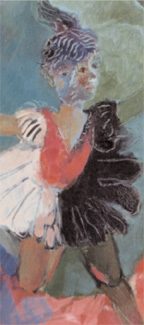| QUILL
& QUIRE
February
2003
Review
by Tracy Thomas
When the Body Says No explores the intimate connection
between mind, body, and spirit through life stories and
intimate interviews with dozens of people who have lived,
died, and sometimes overcome chronic illnesses. Vancouver
physician and writer Gabor Maté has worked as a palliative
care specialist, a psychotherapist, and a caregiver for
people who are living on the street, so he is up to the
task of tackling these complicated medical issues.
Maté illustrates his ideas by analyzing the words
and stories of famous people who've experienced chronic
illness, such as Ronald Reagan, Gilda Radner, Stephen Hawking,
and Pamela Wallin. The interviewees' stories are often touching
and haunting, and are interspersed with chapters dealing
with stress, emotional repression, hormones, the "cancer
personality," the biology of relationships, and the
power of negative thinking.
Maté carefully explains the biological mechanisms
that are activated when stress and trauma exert a powerful
influence on the body, and he backs up his claims with compelling
evidence from the field. Maté cites many controlled
studies that have demonstrated correlations between psychosocial
factors and disease.
However, the work is free of New Age assumptions that all
illnesses are the result of ego issues. Maté emphasizes
that to decipher the hidden factors in chronic illness does
not blame the victim, but provides the opportunity to address
the unintentional transmission of stress and anxiety through
the body and across generations.
Both the lay and specialist reader will be grateful for
the final chapter, "The Seven A's of Healing,"
in which Maté presents an open formula for healing
and the prevention of illness resulting from hidden stress.BACK |
Now comes Gabor Maté , an
insightful, no-nonsense, and thoroughly compassionate
physician who provides an overview of all these perspectives
and comes to the marvelously humane conclusion that ADD/ADHD
is neither nature (genetics) nor nurture (parenting/environment)
but, rather, the result of the collision of a predisposing
nature with an ADD-hostile life situation, family, school,
or job. How refreshing!
-Thom
Hartman, author of ADD: A Different Perception and many
other books about ADD |
|


